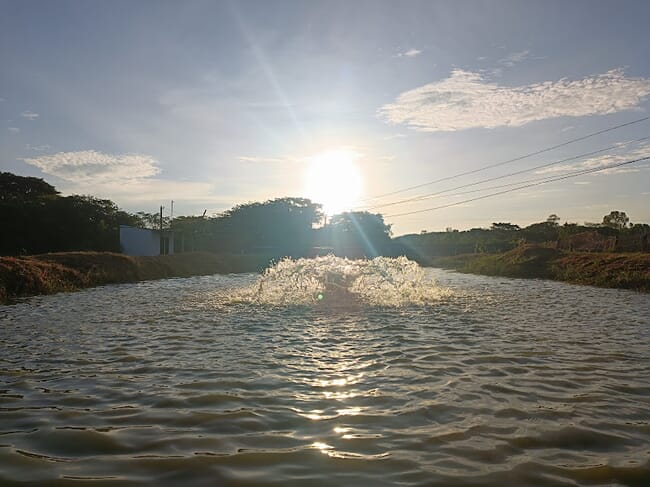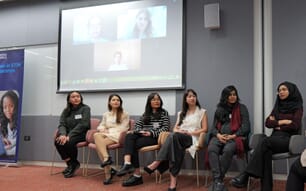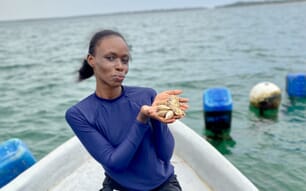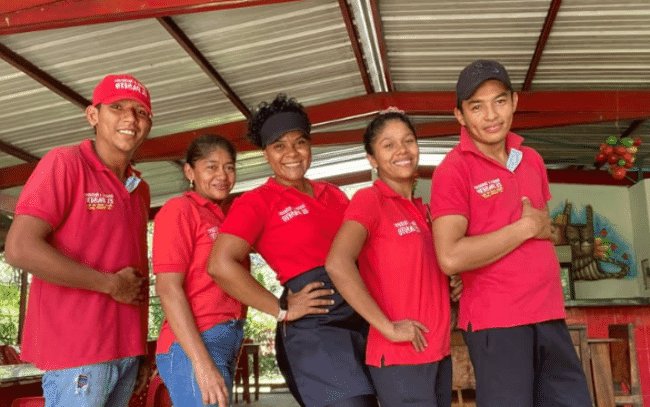
The 37-year-old is a leader in her community – having studied industrial engineering she now follows in the footsteps of her grandmother and mother, who were involved in running a restaurant in the region, as well as fishing activities, more than 40 years ago - and she works with the community to build formal employment opportunities.
What inspired you to join the aquaculture sector?
My family worked in agriculture and also practiced fishing to meet their needs, but when activities such as mining were established close to our town, people started quitting fishing and looked for alternative incomes. My mom, who is also a teacher, always encouraged us to continue educating ourselves, and aquaculture was presented to us by local government entities as an economic option for underdeveloped communities. We saw it as a great option – we knew it involved hard labour, but we were accustomed to that already.
Our farm has 30 associates – six working full-time and 24 on a part-time basis. Last year a bacterial disease decimated our production, but this year, we're on track to produce 12 tonnes of tilapia (Oreochromis niloticus) and 1 tonne of bocachico (Prochilodus magdalenae), the latter an endemic species of our region – reaffirming our commitment to supporting the local traditions and biodiversity. We manage the cycle from seeding fingerlings to harvest, with infrastructure that includes 10 earthen ponds and three circular plastic tanks.
This year we have begun the implementation of a “symbiotic aquaculture” technique which represents a step towards more efficient, resilient and environmentally friendly farming. This involves the promotion of the natural food chain within the culture water of the ponds or tanks – from carbohydrate-rich residues and organic matter to phytoplankton and zooplankton, which serves as natural feed and supplies beneficial bacteria from fermentation to the culture water.
We combine fish farming with a restaurant and rural tourism activities that provide extra income for associates.
What are some of the association’s key achievements to date?
We have managed to grow as an association. We started with 10 members and we currently have 30 members from different educational levels and ethnicities. Around 80 percent of our members are women.
Each of the associates contribute to the daily tasks according to their capabilities; some of them work as farm hands, others only at harvest, while some are dedicated to administrative, sales or distribution activities.
We are proud to be led by women, with an all-female board of directors and president. We have had to overcome the “macho” mentality, and we have contributed to the economic independence of the women in our group, in a region where it is sometimes hard for women to even have a professional career. We have empowered these women.
We have made huge efforts to comply with the administrative and technical requirements of a professionally established aquaculture company. In the past, we have achieved Colombian Good Aquaculture Practices certification, which include administrative tasks such as documenting standard operating procedures and keeping records for internal and external audits, establishing consumer claims procedures and documenting the screening process of our suppliers and contractors and the origin of their products, be it fingerlings, feed or chemicals. On the technical side, we have to document training of personnel regarding sanitation procedures and risk assessments analysis for our work force, the safe handling of the farmed product and the environment. Also, establishing reporting of disease outbreaks or mortalities and keeping track of fish welfare activities during slaughter. All of these activities and more, are directed to producing a sustainable and traceable aquaculture product. Unfortunately, the cost of the certification has been prohibitive to maintain, but we are looking to gather more economic resources so that we can maintain it.
On the social responsibility side, we have managed to establish fair wages for our collaborators, and also we source our supplies from local businesses, to boost the local economy.
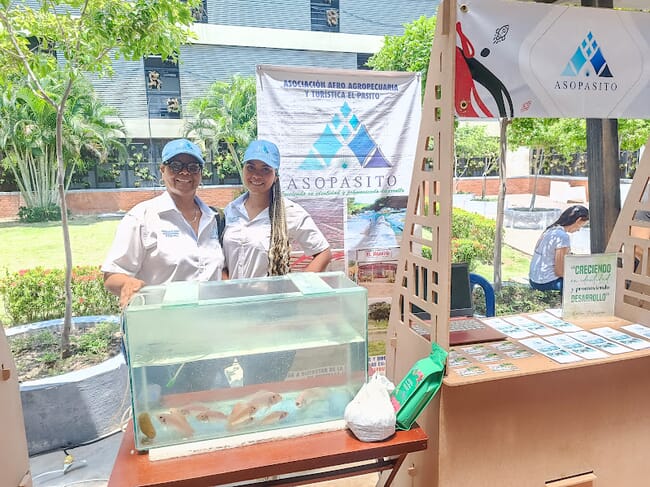
What challenges you have faced?
We’ve had plenty of challenges. We’ve faced climatic challenges, having to endure tropical storms in our farm. On the production side, some years ago there was a boom in biofloc system implementation in our region. We tried it, but we had a long learning curve since we were new to the requirements of that production system and since our region is not equipped with a reliable supply of electricity. We ended up losing some batches of fish because of aeration failures.
But we have learned from all of our experiences, and we have prevailed. We see our mistakes as learning experiences.
In the past we had bacterial outbreaks, specifically Streptococcus agalactiae, arising from lack of proper management knowledge and in 2024 an outbreak practically wiped out our complete batch of production, but this shed a light on improving our production practices and biosecurity measures, such as stricter facility entrance controls, separation of farming equipment and better cleaning procedures.
This year we had another outbreak, but thanks to the improvements we made and the rapid diagnosis by the Colombian Institute of Agriculture (ICA) we only had minor mortalities.
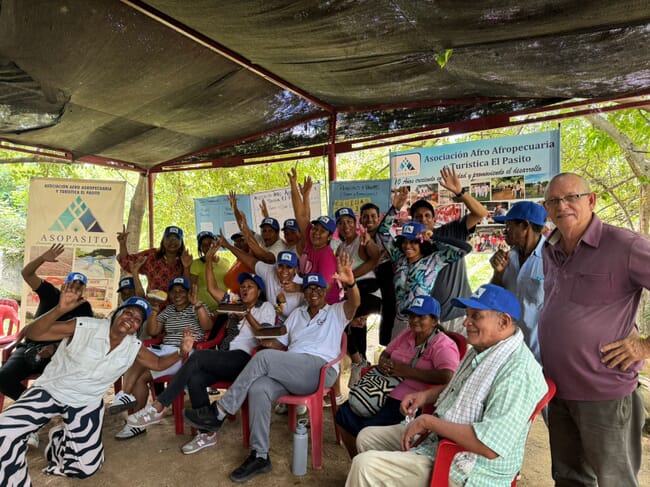
How do you feel about the social aspect of your work?
We are a very close group, almost like family. We promote productive models that respect our own identity and knowledge, generating dignified opportunities for families and building development paths with deep roots in our history and in our people. Our community members also focus on being stewards of their land and we promote local job creation so that the population can stay in their homeland and continue sustainably developing their community.
What is your vision for the future of the organisation?
Our vision is to be recognised in Cesar and across Colombia for leading sustainable community processes that strengthen ethnic communities and generate economic development, environmental balance and pride in our cultural identity.
We strongly believe in inclusion as a fundamental pillar of our work and people with disabilities, victims of the armed conflict and members of the LGTBQ+ community participate in our association.
We would like to advance training for the creation of added-value products in the future and we have plans to double our production within the next three years. We are currently working with the government to get a grant to install seven more circular tanks and also install solar energy to supply our farm.
